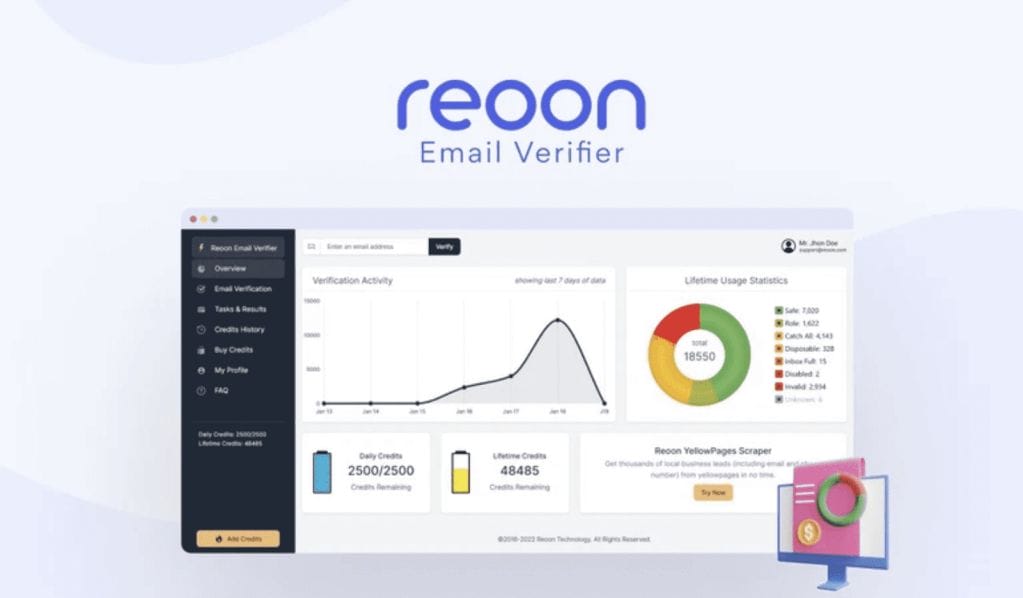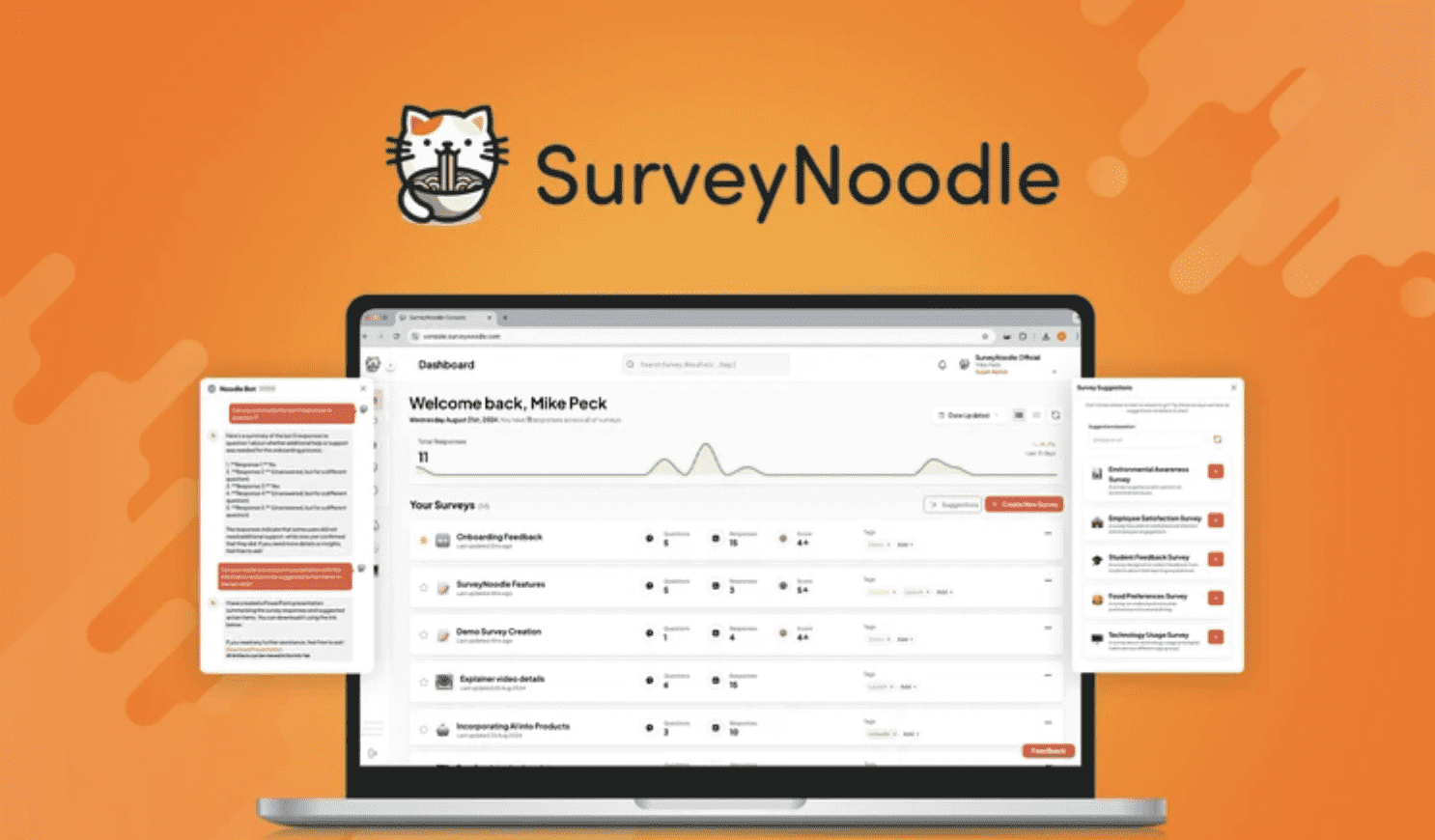Google Maps Scraper is a powerful tool that simplifies the collection of business data from Google Maps, catering to marketers, small business owners, and researchers.
With features like automated data extraction and various targeting filters, it’s ideal for users needing comprehensive location-based insights without complex technical knowledge.
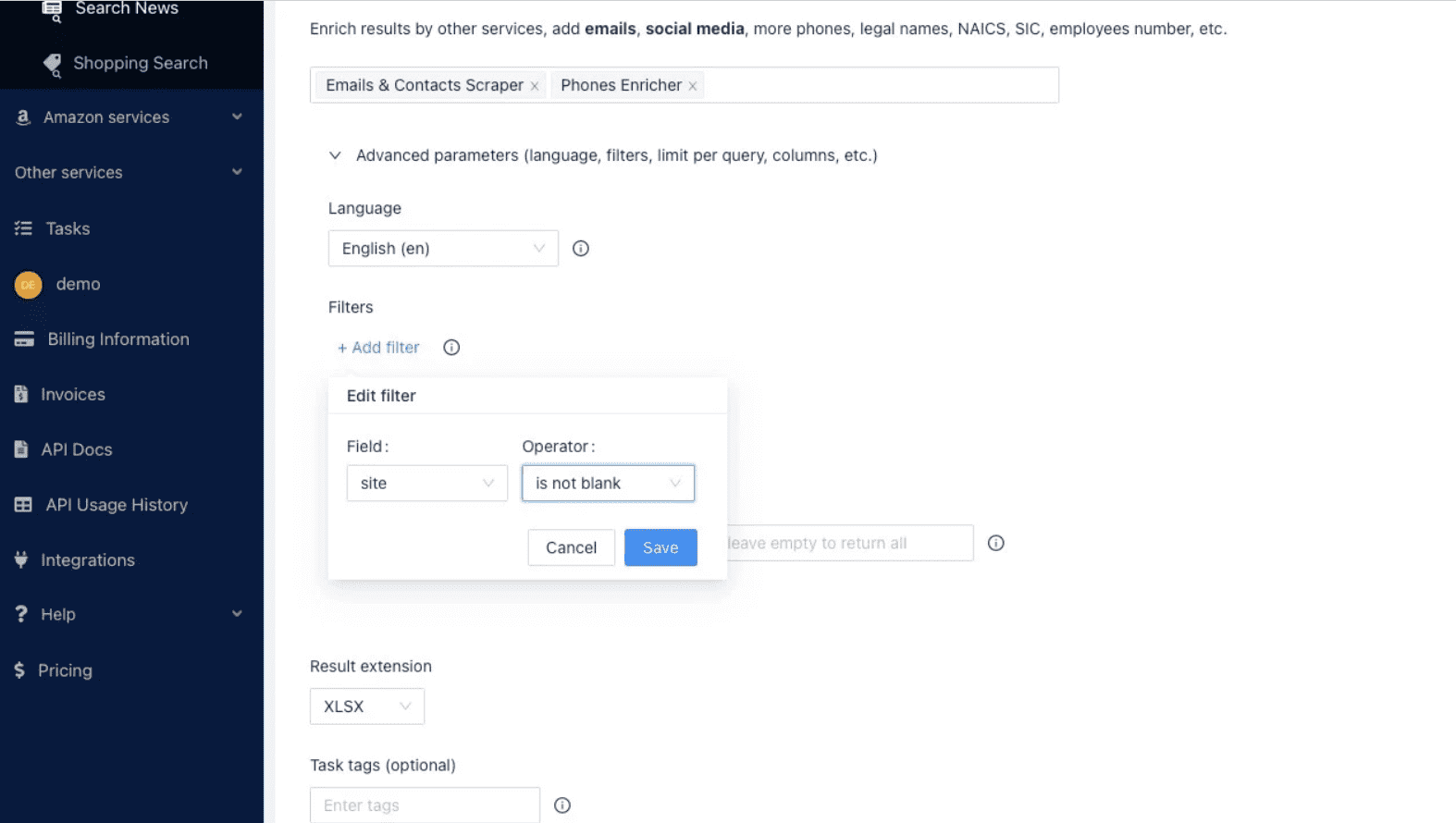
My Experience with Google Maps Scraper
Testing Google Maps Scraper felt seamless and intuitive. As someone who values tools that deliver quick results without much setup, I appreciated the easy three-step process and the visual editor for filtering data. I initially tested it for market research, extracting data on local businesses in my area. The tool handled a large dataset, including business names, contact details, and customer reviews, all within minutes.
One instance stands out: I needed to gather information on coffee shops in my area for a quick comparison project. With Google Maps Scraper, I pulled details on over 100 coffee shops, including opening hours, popular times, and even customer ratings, in a fraction of the time manual research would have taken. This convenience highlighted its real-world value for local SEO and market research.
Pros and Cons
Pros
- User-Friendly Interface: No coding required; suitable for all users.
- Comprehensive Data Collection: Captures business names, contact info, reviews, hours, and more.
- Flexible Export Options: Supports JSON, CSV, and Excel formats.
- Efficient Targeting: Multiple location and keyword-based filters for precise data extraction.
Cons
- Internet Dependent: Requires a stable connection for best performance.
- Speed Variability: Slower performance for complex searches.
- Formulaic Patterns: Some repetitive patterns in data output.
- Limited Offline Functionality: Only functions with an active internet connection.
Core Features of Google Maps Scraper
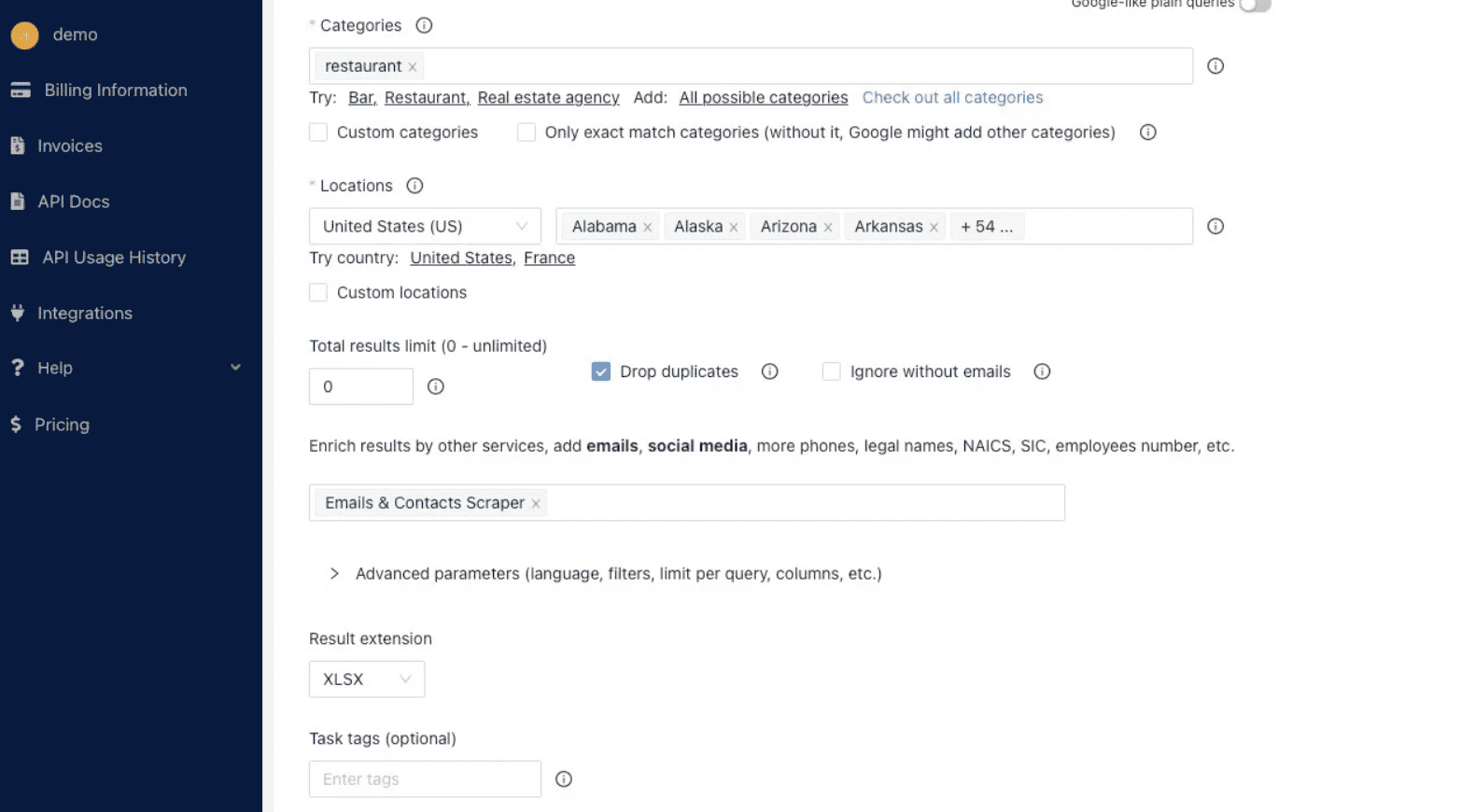
Data Extraction Capabilities
Google Maps Scraper excels in extracting structured data, including:
- Business Contact Information: Name, phone number, and email (where available).
- Geographic Coordinates: Latitudinal and longitudinal details for mapping.
- Customer Reviews and Ratings: Aggregates customer feedback, useful for sentiment analysis.
- Opening Hours and Popular Times: Gathers hours and peak visit times for operational insights.
- Images and Business Details: Includes visual content and descriptive information.
- Price Information and Menus: Provides data on pricing and menus where available.
This extensive dataset supports market research, lead generation, and business intelligence initiatives, offering a reliable tool for users who need granular data on local businesses.
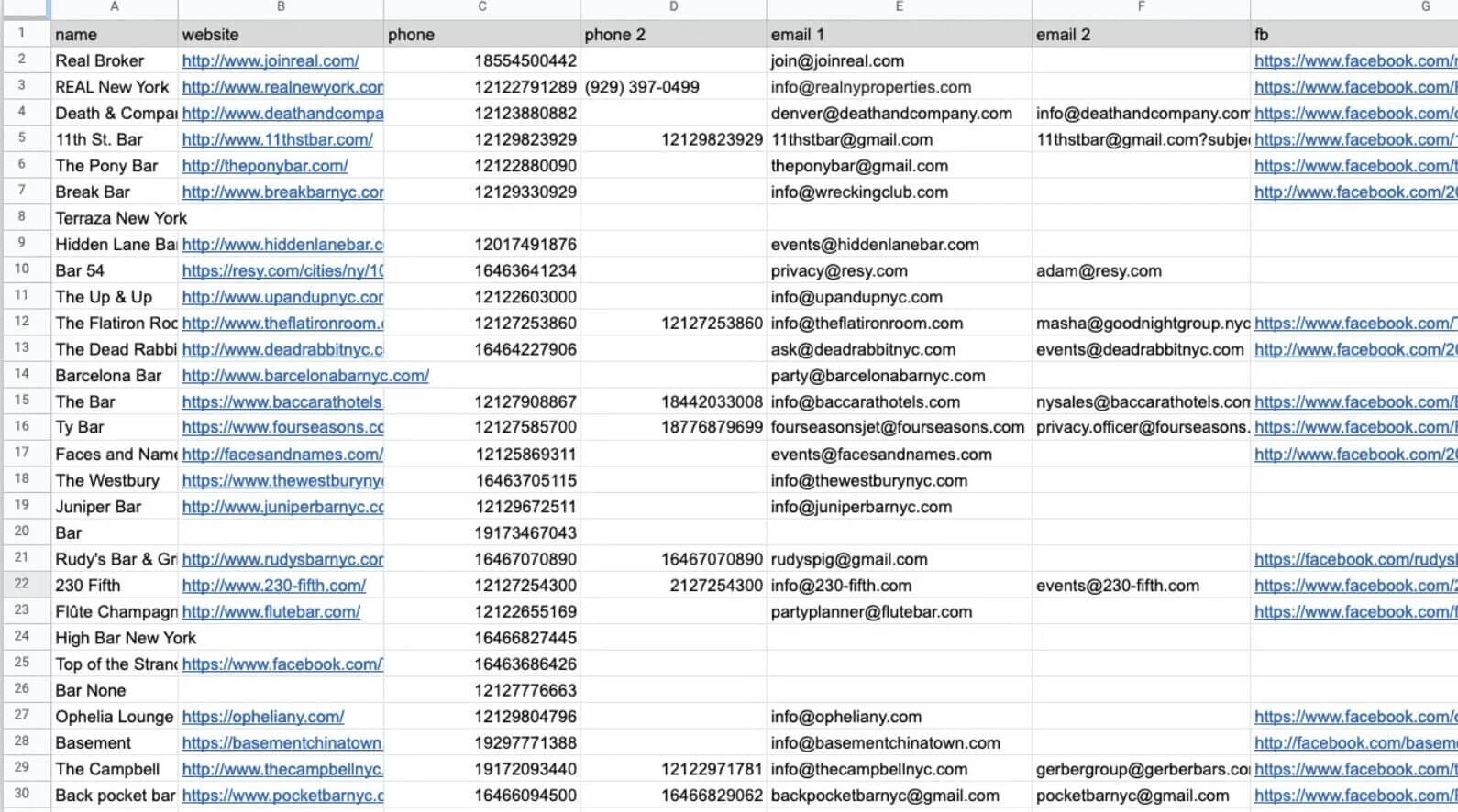
Comparison with Competitors: Google Maps Scraper vs. Bright Data vs. Oxylabs
| Feature | Google Maps Scraper | Bright Data | Oxylabs |
|---|---|---|---|
| Starting Price | $49/month | $500/month | $49 per 17.5K results |
| Free Trial | 2,000 results | 7 days | 7 days |
| Data Format | JSON, CSV, Excel | JSON, CSV | HTML, JSON, CSV |
| Location Targeting | City, country, zip | Country, city | Country-level |
Advantages Over Competitors
Google Maps Scraper stands out for its affordable starting price and flexibility in targeting specific locations, such as city or zip code levels. Unlike Bright Data and Oxylabs, which offer more extensive features but have a steeper learning curve, Google Maps Scraper provides a simpler, more accessible interface. This makes it ideal for users prioritizing ease of use over complex configurations.
Limitations Compared to Competitors
While Google Maps Scraper is user-friendly, it may lack the advanced features of Bright Data and Oxylabs, such as in-depth location customization and enhanced data formats. Additionally, for users with high-volume data needs, Bright Data’s broader suite might be more suitable despite its higher cost.
Pricing Structure
Google Maps Scraper offers an affordable and transparent pricing model, suitable for various user levels:
- Starting Price: $49 per month for basic plans.
- Free Trial: Allows up to 2,000 results during the trial period, enabling users to test its functionality without commitment.
This pricing model makes it accessible for small businesses and independent researchers, offering value without the high costs associated with larger data scraping services.
Lifetime Deal Pricing for Google Maps Scraper
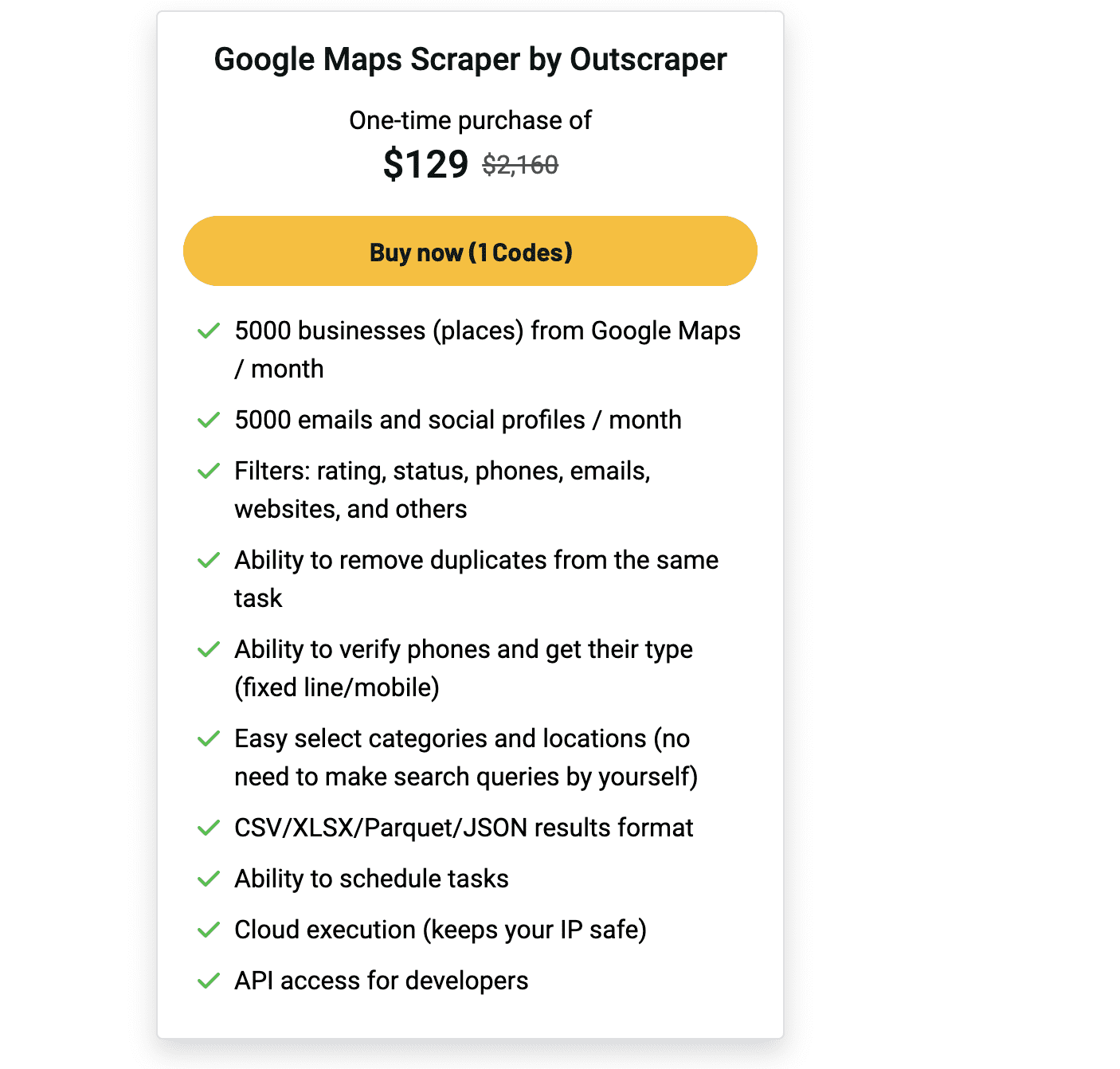
Key Differentiators
Speed and Performance
In terms of speed, Google Maps Scraper can process around 230 reviews per minute, a rate that keeps it competitive with similar tools:
| Tool | Processing Speed (Reviews/Minute) |
|---|---|
| Google Maps Scraper | 230 |
| Apify | 280 |
| Outscraper | 150 |
This performance allows users to extract large datasets quickly, especially helpful for time-sensitive projects in marketing or market research.
User-Friendly Features
Google Maps Scraper offers several features that simplify data extraction:
- Automated Extraction: Runs searches automatically based on set parameters.
- Visual Editor for Filters: Enables targeting by location, business type, and keywords.
- Export Options: Supports JSON, CSV, and Excel formats for flexible data usage.
- Built-in Verification: Cross-checks emails and phone numbers to enhance data quality.
These features contribute to a streamlined user experience, making Google Maps Scraper a preferred choice for non-technical users and small business owners.
Interface and Usability
Google Maps Scraper
Google Maps Scraper’s clean and intuitive interface is easy to navigate. Users can access a three-step setup process, allowing quick configuration and execution of searches. The visual editor helps with setting up filters, making it ideal for users with limited technical skills.
Competitors (Bright Data and Oxylabs)
Competitors like Bright Data and Oxylabs offer more advanced interfaces with a steeper learning curve. While they provide extensive features for technical users, their complexity may feel overwhelming for those who prioritize simplicity.
User Feedback and Final Impressions
Positive Aspects
- Efficiency and Simplicity: Google Maps Scraper’s setup is quick and doesn’t require coding, which users appreciate.
- Data Reliability: Provides clean and well-organized data, ideal for lead generation and business research.
- Responsive Support: Users commend the tool’s reliable customer support, which ensures issues are resolved swiftly.
Areas for Improvement
Some users have noted that internet dependency affects performance, especially for complex queries. Additionally, the formulaic patterns in certain datasets may require adjustments depending on the project’s needs.
Best Use Cases for Google Maps Scraper
Google Maps Scraper is particularly well-suited for:
- Market Research: Gathers competitive insights and helps identify local business trends.
- Lead Generation: Provides comprehensive contact data for targeted marketing campaigns.
- Competitor Analysis: Extracts competitor details to support strategic positioning.
- Local SEO Research: Collects business information to improve local SEO tactics.
This tool’s flexibility and simplicity make it useful for both technical and non-technical users, from small business owners to marketing professionals.
Final Thoughts: Is Google Maps Scraper Right for You?
Google Maps Scraper is an excellent choice for anyone needing structured business data from Google Maps. It delivers accurate and actionable data with minimal setup, making it accessible for all user levels. While it may not have the in-depth features of higher-priced competitors, its ease of use, affordability, and reliable data extraction make it a compelling choice for businesses, marketers, and researchers.
If you value quick setup, efficient data collection, and user-friendly features, Google Maps Scraper is a worthwhile investment for location-based data insights.
️🔥 Limited Time Deal
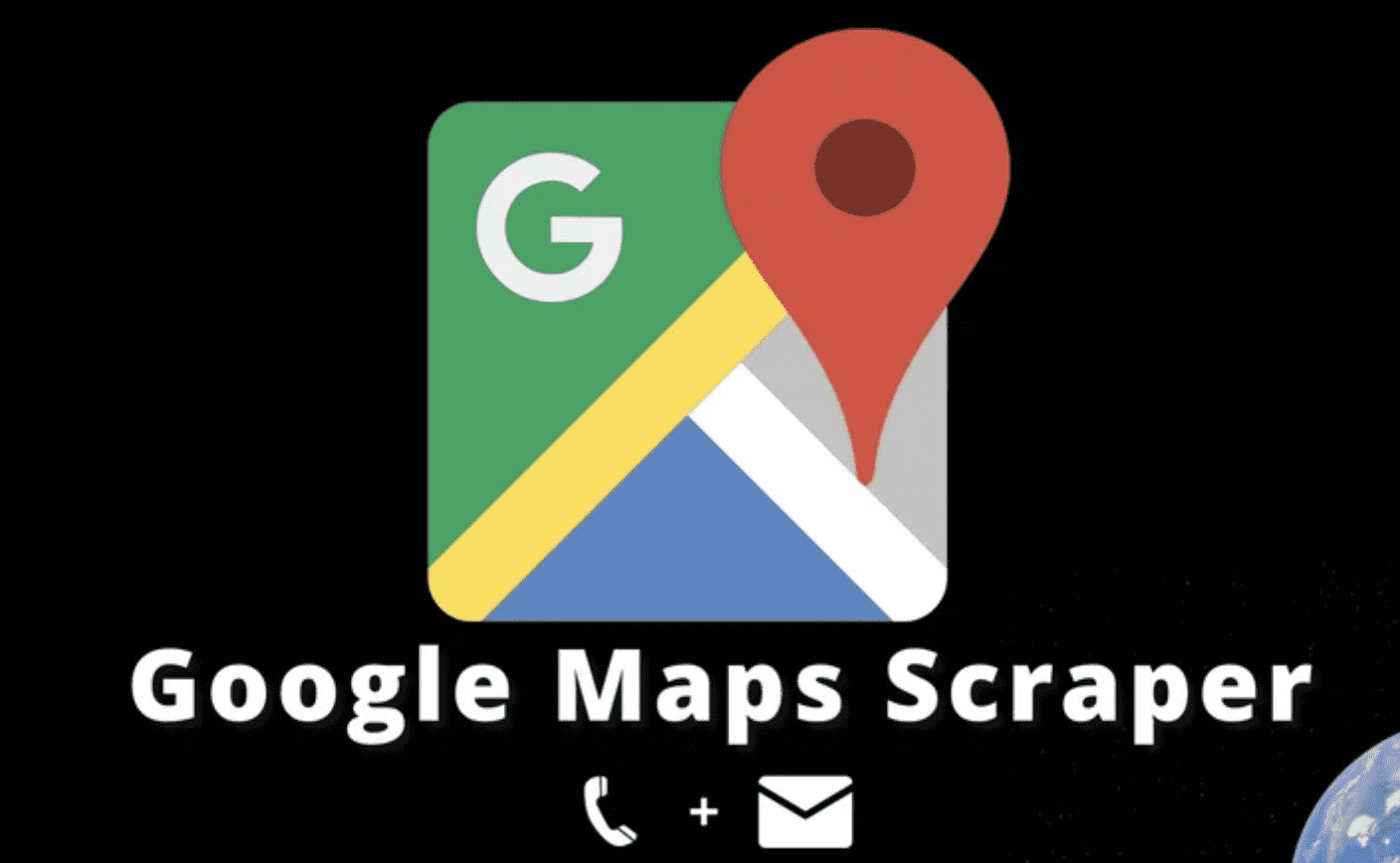
Why Getting Google Maps Scraper?
- User-Friendly Interface: No coding required; suitable for all users.
- Comprehensive Data Collection: Captures business names, contact info, reviews, hours, and more.
- Flexible Export Options: Supports JSON, CSV, and Excel formats.
- Efficient Targeting: Multiple location and keyword-based filters for precise data extraction.

